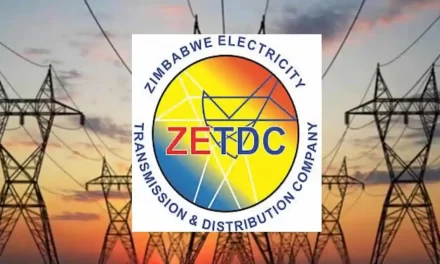Currently, it is estimated that about 4 million Zimbabweans are in the diaspora for various reasons. Some of them are working and there is a lot that they can contribute to the economy of the country even in their absence. At times, Zimbabwe seems ill prepared to embrace this contribution. In this article, we explore how those in the diaspora can contribute to the economic growth of our country.
Diaspora remittances
Most of the people living in the diaspora will tell you that they have relatives in Zimbabwe to whom they send money regularly. According to the Monetary Policy Statement (MPS) presented by Reserve Bank of Zimbabwe Governor Dr John Mangudya last week, diaspora remittances contributed $619.2 million in 2018 as compared to $699 million in 2017. Dr Mangudya attributed this to increased preference to sending in-kind remittances.
Another factor is that some avoid official channels like Western Union and MoneyGram because they don’t want to incur charges and also due to lack of foreign currency here in Zimbabwe. Such people prefer informal channels like cross border transporters and the like. With informal channels, you can be sure that your relative receives exactly the same money you sent, just the way you sent it. Recent reports of some formal channels paying recipients in Bond Notes only serve to discourage people from using them. Clearly, if measures are put in place to ensure recipients always get their money in the currency in which it was sent and on time, formal diaspora remittances will rise and contribute much more to the economy. There is also need to incentivise those remitting funds. The existent incentive scheme seems to have ended with the MPS last week.
Investment
Another way that those in the diaspora can contribute to the economy is through investing in the country. It is a fact that there are people who send money to their relatives in order for them to start businesses. Others partner with local companies in various industries as well. The $400 million National Railways of Zimbabwe (NRZ) deal is a case in point. A group from the diaspora called the Diaspora Infrastructure Development Group (DIDG) partnered with Transnet from South Africa to come up with a deal to revamp NRZ. This is how those in the diaspora can participate in driving economic growth. Unfortunately, deals like this have failed to take off before for a number of reasons, chief among them policy inconsistency and problems with the ease of doing business. The NRZ deal is yet to start.
For smaller investors, government should find a way to embrace them and make conditions conducive for them to want to invest more. It is worrisome that opening a company remains a nightmare in the country at a time when investment is what we are desperately seeking. Again, government should clear the way if we are to see more investment flowing into the country from the diaspora.
Skills transfer
Even if the diaspora cannot offer us money, skills transfer is another way that they can contribute to the economic well being of the country. A lot of our skilled personnel live abroad. While there, they have acquired new skills, latest methodologies and technologies. These skills can be transferred to locals through short term agreements where they temporarily come home to teach locals and exchange ideas. The benefits of doing this are immense and the International Organisation for Migration (IOM) has done some work on this although more still needs to be done. A concerted effort is therefore needed to scale this up. Admittedly, government has also been welcoming in this regard but the pace of implementation of these and other programmes is rather sluggish.
Drawbacks
Despite the numerous ways in which those in the diaspora can help grow the economy, there are a few sticking points which still hinder progress. Firstly, Zimbabwe has a history of policy inconsistencies. Policies are chopped and changed often and this scares away potential investors. These and other reasons also affect the ease of doing business. The World Bank Doing Business 2019 Report ranked Zimbabwe a distant 155th out of 190 countries. Rwanda is ranked an impressive 29th while South Africa is 82nd. This needs to be changed as it discourages investors. A deeper look into the report scores shows that Zimbabwe ranks really poorly in Starting a business, Construction permits, Getting electricity and Enforcing contracts.

Image from www.doingbusiness.org
Another problem is that those in the diaspora are not yet allowed to vote whenever elections happen in the country. This tends to alienate them. As a result, they are not willing to fully participate in economy building as they always feel left out. With the coming in of the new political leadership led by President Emmerson Mnangagwa, many thought these challenges would be dealt with in a flash.
Uncertainty around the currency is still a common feature to date. Laws like the foreign currency retention thresholds seem to punish rather than reward those in business. Moreover, recent violent protests that left many buildings destroyed and goods looted paint a bad image of the country. We look like we are closed for business rather than open. These problems affect the contribution that those in the diaspora can make to uplift our economy.
Those in the diaspora have the potential to contribute positively to the economy, if only conditions are improved. With more strategic focus, that contribution can be effective. A conducive environment is required.








